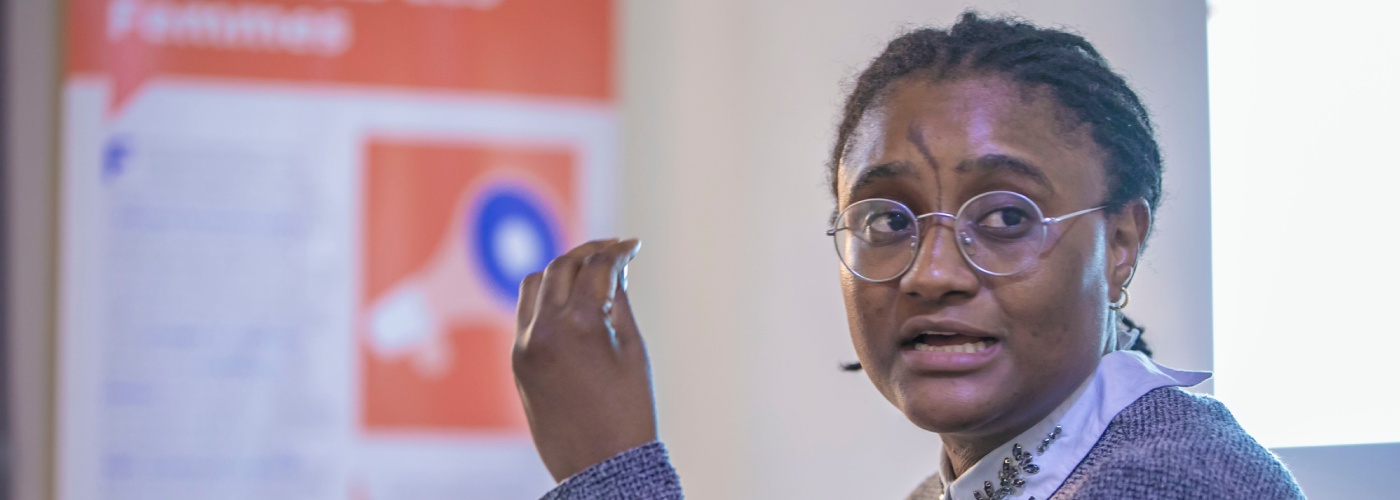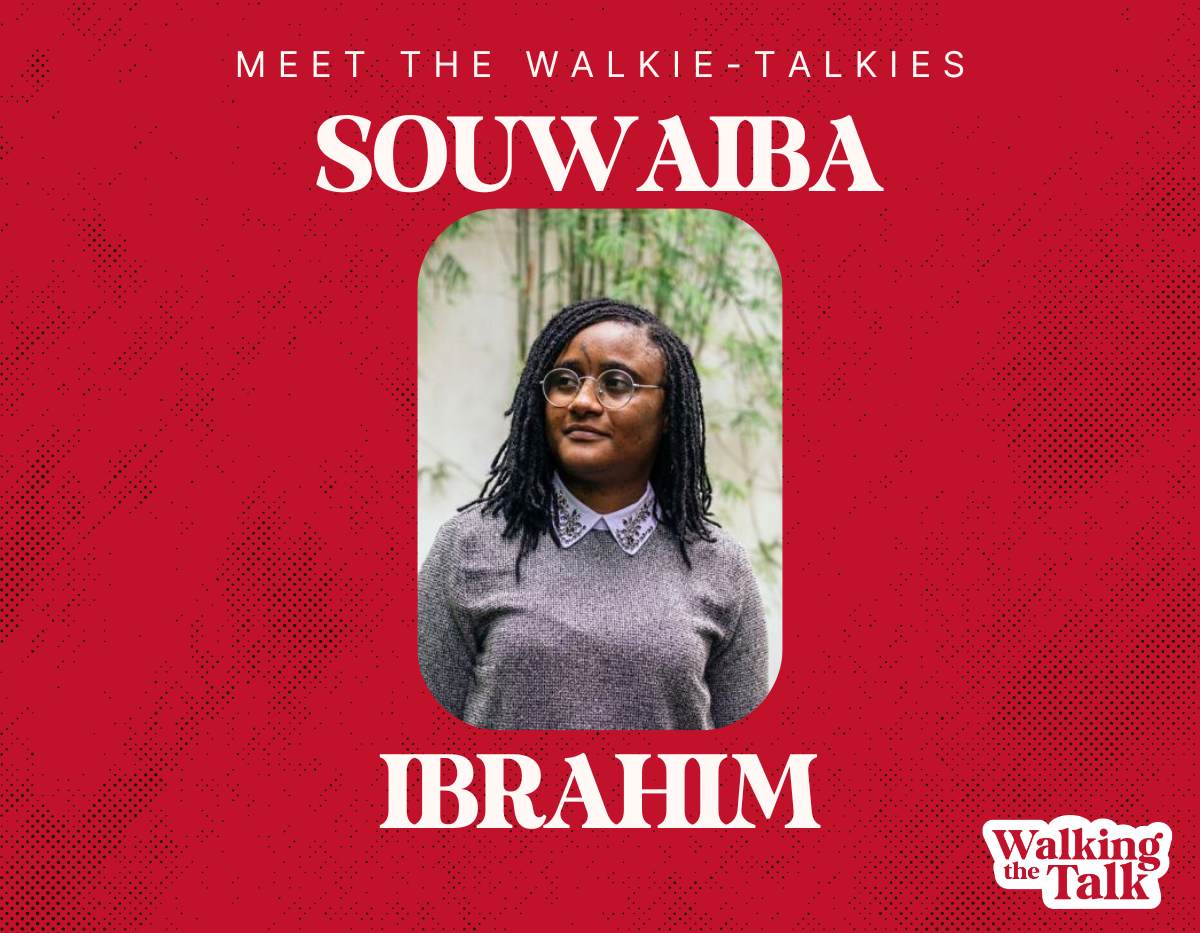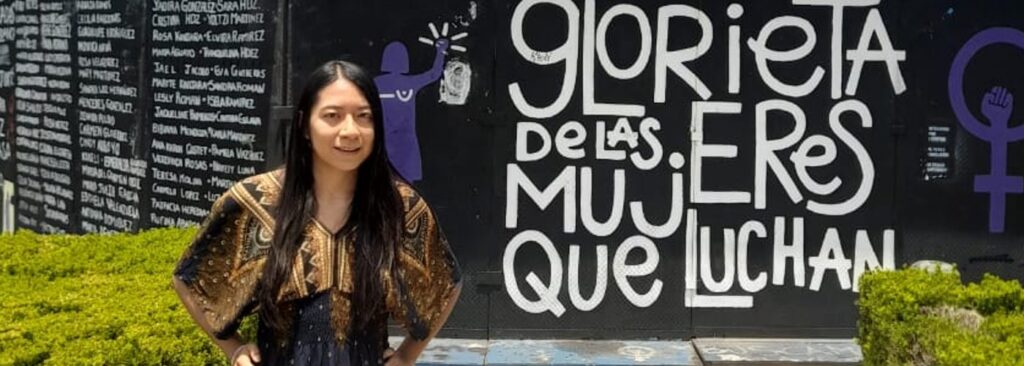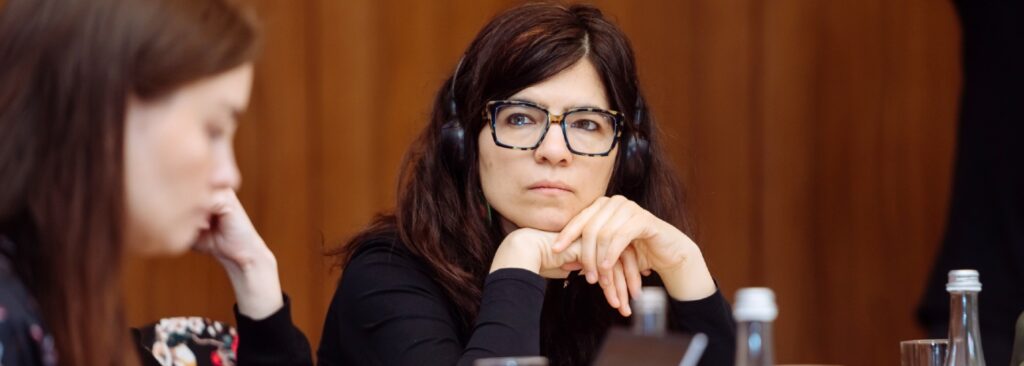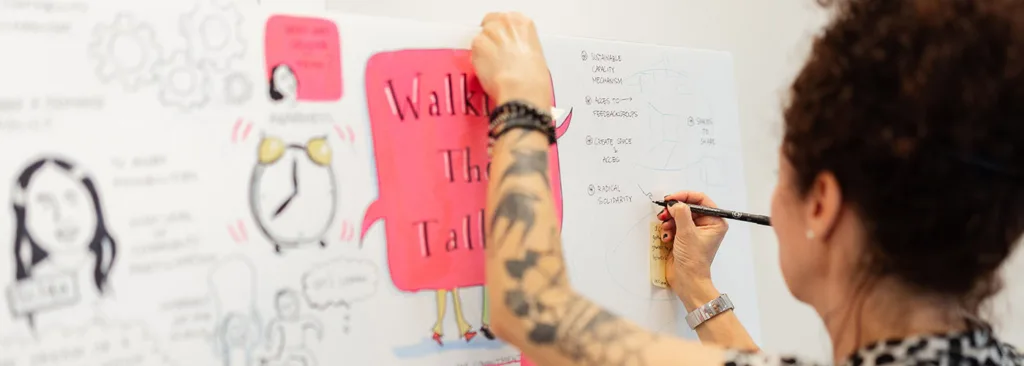The Walking the Talk consortium is proudly working with six exceptional feminists from all over the world – aka our team of ‘Walkie-Talkies’. These experts bring unique perspectives and invaluable experience to our mission of promoting Feminist Foreign policies, practices, and funding in Germany, France, the United Kingdom, the Netherlands, and the European Union.
How would you introduce yourself?
Souwaiba Ibrahim, criminal lawyer, part-time lecturer at the Faculty of Legal and Political Sciences, intersectional feminist, President of the Ligue Nigérienne des Droits des Femmes, co-founder of “Voix Féministes d’Afrique Francophone”, focal point of the Odas Center for safe abortion in Niger and member of the Pananetugri Fund Evaluation Committee.
What personal experiences shaped your feminist beliefs? In what way?
I was born and raised in an activist environment, so I’ve always been immersed in defending just causes. My grandfather was a political prisoner and lost his life in prison. He was against the one-party system at the time and campaigned for a multi-party system. Since then, it’s been a tradition, from generation to generation, to militate for a cause. When I grew up, I became a feminist activist.
How would you explain Feminist Foreign Policy concept to someone who has never heard of it?
It’s an approach to international relations that emphasizes gender equality and women’s rights. A feminist foreign policy integrates gender equality into every aspect of foreign policy, from trade negotiations to peacekeeping missions and development aid. It strives to ensure that women are fairly represented in international decision-making processes. This includes diplomacy, international organizations and global forums where important decisions are taken.
Feminist foreign policy supports initiatives that combat gender-based violence, improve access to education and healthcare for women, and encourage their political and economic participation.
It recognizes that women are not a homogeneous group, and that other factors such as race, ethnicity, class, sexual orientation and gender identity can influence their experiences and needs. A feminist foreign policy therefore takes into account these multiple facets to develop inclusive and just policies. It addresses structural inequalities and supports local feminist movements.
Can you remember your first encounter with the FFP approach? What did you think then?
I encountered several situations that I found problematic in the way Western chancelleries were operating in Africa. I heard the FFP expression for the first time with Canada and found the concept and its content very progressive. Since then, I’ve been doing more research and thinking along these lines, and I believe that the feminist approach is necessary in diplomacy, otherwise people will get bogged down in their approach, and the solutions proposed will not be sustainable.
What does FFP mean in your community?
In a Black African feminist community, feminist foreign policy can take on special significance due to unique historical, cultural and social contexts. It should aim to decolonize international relations by challenging colonial-era power structures that continue to affect African countries. This includes revising trade policies, international aid practices and humanitarian interventions to make them fairer and more respectful of national sovereignty.
It should highlight local knowledge and perspectives, valuing the contributions of Black African women to international debates on human rights, social justice and sustainable development. This should include promoting positive cultural practices and integrating African perspectives into global discussions.
It can actively support local feminist movements in Africa, by providing resources, amplifying their voices on the international stage, and facilitating partnerships with international organizations. This would strengthen the capacity of African women to defend their rights and lead initiatives for social change.
A feminist foreign policy must promote peace and security by integrating women’s perspectives into conflict resolution and post-conflict reconstruction processes, ensuring that their needs and rights are central to peace efforts.
Finally, it will seek to promote economic justice for Black African women by supporting policies that foster their economic empowerment. This includes access to education, financing, land ownership and equitable economic opportunities.
In your opinion, what role can young people play in making a feminist foreign policy successful?
Young people are dynamic and essential players in the promotion and implementation of a feminist foreign policy, especially as they make up the majority of the population in Africa. Their energy, creativity and commitment make a significant contribution to the advancement of gender equality on the international stage.
Young people represent a diversity of experiences and perspectives. Their inclusion in decision-making processes can enrich policies and make them more inclusive and representative of the needs of all women, especially those from marginalized communities.
Young people have the ability to mobilize quickly and effectively around the causes they care about. Using social networks and other digital platforms, they have an incredible capacity to mobilize. What’s more, they often bring new perspectives, innovative ideas and creative solutions to complex challenges. Young people also play an educational role for their peers, and are a considerable force for change.
They create and strengthen support networks between feminist movements around the world. By collaborating with other young activists and organizations, they share resources, strategies and experiences to promote a better world.
Finally, young people play an important role in monitoring governments’ commitments and actions with regard to feminist foreign policy. By using monitoring tools and demanding accountability, they ensure that announced policies are effectively implemented and respect gender equality principles.
If you had a magic wand: what would you change in your country or region?
I’d kick military coup plotters off the political scene in the Sahel!
The militarization of political power, particularly visible in the Sahel where military coups have overthrown elected presidents, poses grave dangers to the region’s political stability and diplomacy, and challenges established rights.
Military coups undermine democratic institutions and the electoral process, leading to a loss of confidence in the political system. Fear and repression deter citizens from participating in political life, limiting public debate and constructive discussion. Frequent changes of power lead to discontinuity in policies and programs, disrupting economic and social development.
Military regimes use repression to maintain power, which can lead to violations of human rights. Marginalized groups, including women and people of diverse genders, are particularly disadvantaged under military regimes, exacerbating existing inequalities. Moreover, the militarization of power encourages similar behavior in neighboring countries, creating a domino effect and increasing instability throughout the region. This has been seen in Mali, Burkina Faso and Niger.
A favourite feminist song ? ♫
Debout les femmes, the anthem of the Women’s Liberation Movement (MLF) in France, because the lyrics are particularly touching for me.
About the Walkie-Talkies
The “Walkie-Talkies” are feminists with expertise and lived experiences in gender equality policies and practices. They come from diverse backgrounds and regions, bringing intersectional perspectives on issues such as climate justice funding, SRHR, gender-based violence, and feminist technology. They are committed to sharing lessons, driving positive change, and actively participating in strategic activities within the consortium.

